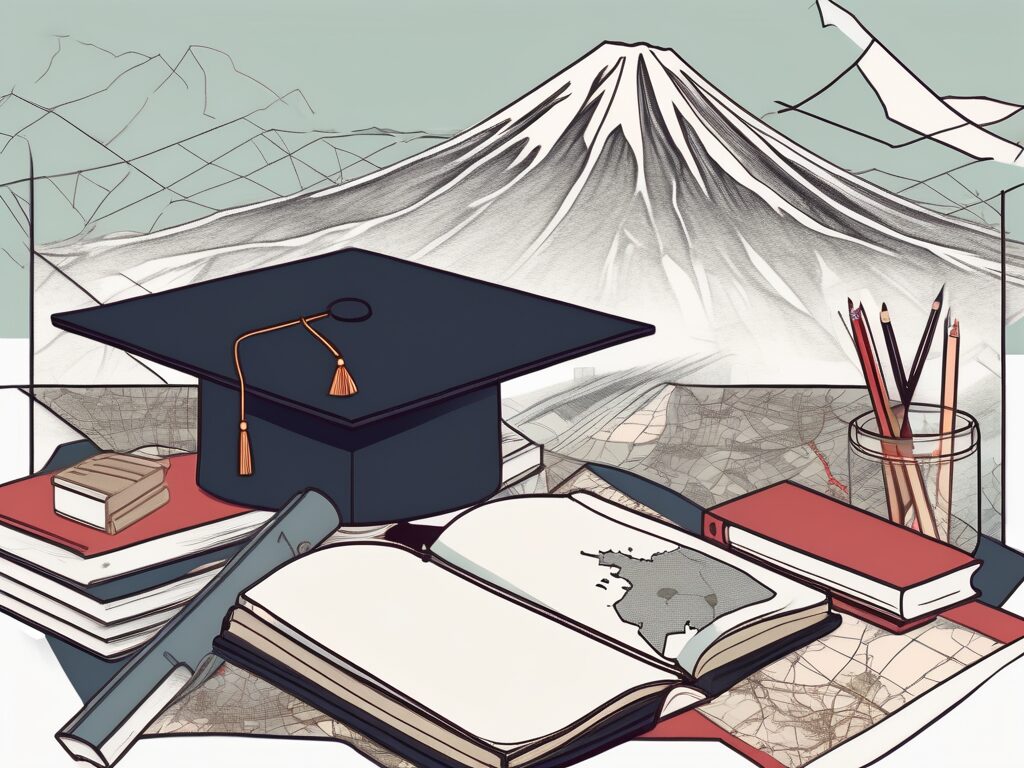Japan, a nation known for its technological advancements and economic prowess, is facing a significant challenge in the realm of higher education. Despite its reputation for a rigorous and disciplined education system, Japan’s universities and colleges are grappling with a myriad of issues. These range from declining enrolment numbers to a lack of internationalisation, and from outdated teaching methods to a mismatch between graduate skills and labour market needs.
Declining Enrolment Numbers
One of the most pressing issues facing Japan’s higher education sector is the declining number of students. This is largely due to the country’s low birth rate and ageing population. As the number of young people decreases, so too does the pool of potential university applicants.
For instance, let’s compare Japan’s situation with that of the United Kingdom. In the UK, the population is also ageing, but the birth rate is higher. This means that British universities can still count on a steady stream of applicants each year. In contrast, Japanese institutions are facing a significant reduction in student numbers, which is causing financial strain and leading some smaller universities to close their doors.
Lack of Internationalisation
Another major issue is the lack of internationalisation in Japanese higher education. While universities in countries like the United States, the UK, and Australia attract a large number of international students, Japanese universities lag behind. This is a problem because international students bring a diversity of perspectives and ideas, enriching the learning environment for all students.
Moreover, Japanese students themselves are not studying abroad as much as their counterparts in other developed countries. This lack of international exposure can limit their worldview and make them less competitive in the global job market. It’s like trying to play a game of football without ever having watched a match – you’re at a disadvantage because you don’t fully understand the rules or tactics.
Outdated Teaching Methods
Japan’s higher education system is also criticised for its outdated teaching methods. Many universities still rely heavily on rote learning and memorisation, rather than encouraging critical thinking and problem-solving skills. This is akin to using a typewriter in the age of computers – it’s not necessarily wrong, but there are more efficient and effective methods available.
Furthermore, many classes are lecture-based, with little interaction between students and professors. This can make learning a passive rather than an active process, and can hinder students’ ability to retain and apply knowledge. It’s like watching a film without subtitles – you might get the gist of the story, but you’ll miss out on the nuances and details.
Mismatch Between Graduate Skills and Labour Market Needs
Finally, there is a growing mismatch between the skills that Japanese university graduates possess and the needs of the labour market. Many employers complain that graduates lack the practical skills and experience needed to hit the ground running in the workplace.
Imagine training for a marathon by only reading about running techniques, without actually lacing up your trainers and hitting the pavement. You might have theoretical knowledge, but without practical application, you’re unlikely to succeed in the race. Similarly, Japanese graduates often have a solid theoretical understanding of their field, but lack the practical skills and experience that employers value.
Conclusion
Addressing these issues is crucial for the future of Japan’s higher education system and for the country’s economic and social development. It will require concerted efforts from the government, universities, and society at large. But with the right strategies and policies in place, Japan has the potential to overcome these challenges and create a higher education system that is robust, inclusive, and fit for the 21st century.
Just like a football team needs to adapt its tactics to overcome a strong opponent, or a runner needs to adjust their training regime to improve their marathon time, Japan needs to adapt and innovate to tackle the problems facing its higher education system. The journey may be challenging, but the potential rewards – a vibrant, dynamic, and globally competitive higher education sector – are well worth the effort.
Empower Your Teaching Career with IPGCE
As Japan seeks innovative solutions to revitalize its higher education system, educators have a unique opportunity to lead this transformation. IPGCE offers a pathway to enhance your qualifications and embrace the global educational landscape. By joining the UK’s #1 Teacher Training Course, you can overcome the barriers of stringent qualification requirements, accelerate your career progression, connect with an international professional community, and gain a deep understanding of global education systems—all while balancing your existing work commitments. Don’t let inadequate credentials limit your potential. Join the UK’s #1 Teacher Training Course today and become a pivotal part of the solution for Japan’s higher education challenges.

